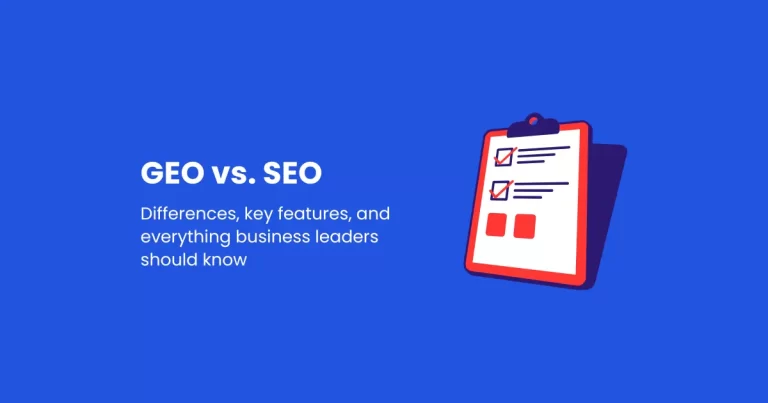Think Digital Warsaw 2025: Google Analytics 4 and the New Era of Digital Marketing Performance Measurement
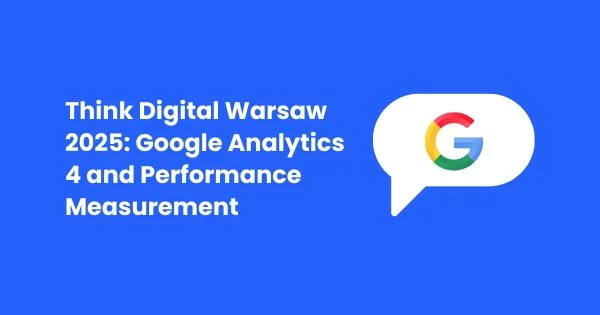
“Digital marketing measurement is fundamentally changing in 2025.”
This is the main message Raibec’s team brought back from this year’s Think Digital conference in Warsaw (Think Digital Warsaw), organized by Google. The event was packed with insights, presentations, and strategic visions for where Google Analytics and the broader digital marketing ecosystem are heading.
Think Digital Warsaw 2025 and All The Google Insights
GA4: From a Tool to a Comprehensive Measurement Platform
Google officially announced a new version of Google Analytics 4 (GA4) — a version that not only introduces several new features but also marks a fundamental strategic shift. The new platform is being developed as a long-term, data-driven infrastructure for digital marketing that will be used not only by marketers but also by data analysts, growth strategists, product managers, and other business decision-makers.
GA4 aims to create a unified environment for tracking, analyzing, and optimizing the entire user journey — from first touchpoint to purchase and loyalty phases — across all platforms, both online and offline.
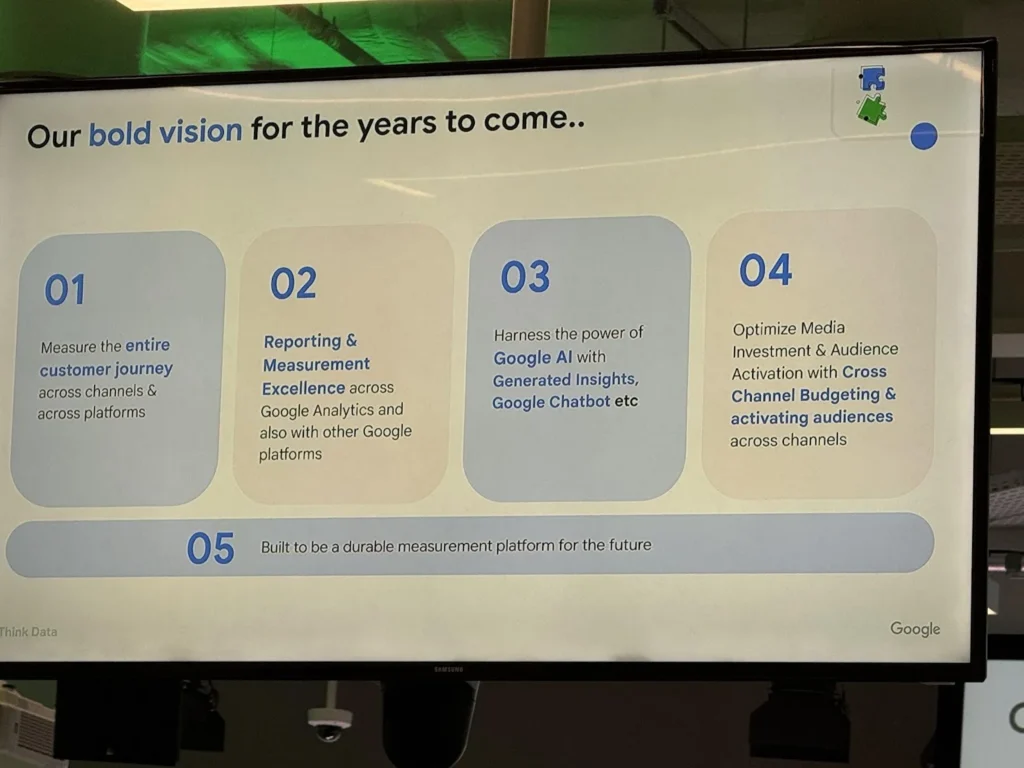
Google User Journey Analysis: From Fragments to Unity
GA4 puts strong focus on cross-channel and cross-device tracking, allowing for monitoring user behavior across all interaction points — ads, organic traffic, email, social media, mobile apps, or even physical stores.
This allows marketers to:
- Move away from outdated and misleading “last click” models.
- See the full picture of user behavior.
- Attribute conversions more accurately to real channels.
- Create smarter automated campaigns for different audiences.
- Analyze audiences and their actions in even more detail.
Google AI Integration: More Than Just Insights
During the Think Digital Warsaw event it became clear Google continues to lean heavily into AI-driven analytics. From now on, GA4 won’t just collect data — it will analyze and interpret it for you:
1. Automatic AI Insights
The system will automatically detect significant data changes and provide interpretations with commentary explaining potential causes behind those shifts.
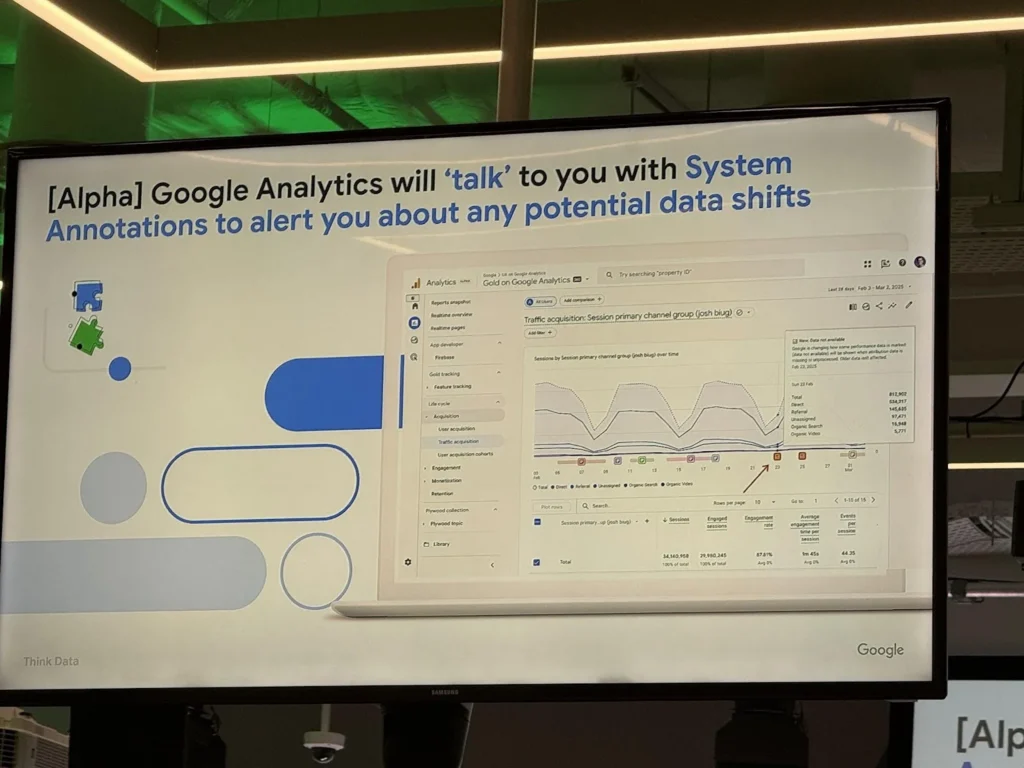
2. Google Analytics Chat
This is a major leap forward. Through a simple text query, you’ll be able to ask:
- “What were the main sources of conversions for channel X in February?”
- “Show a graph of how mobile traffic changed over the last 6 months.”
And receive an instant response with a visualization.
This is a powerful tool not only for analysts, but also for those who work with data only occasionally or lack deep technical knowledge. See on the visual from Think Digital Warsaw.
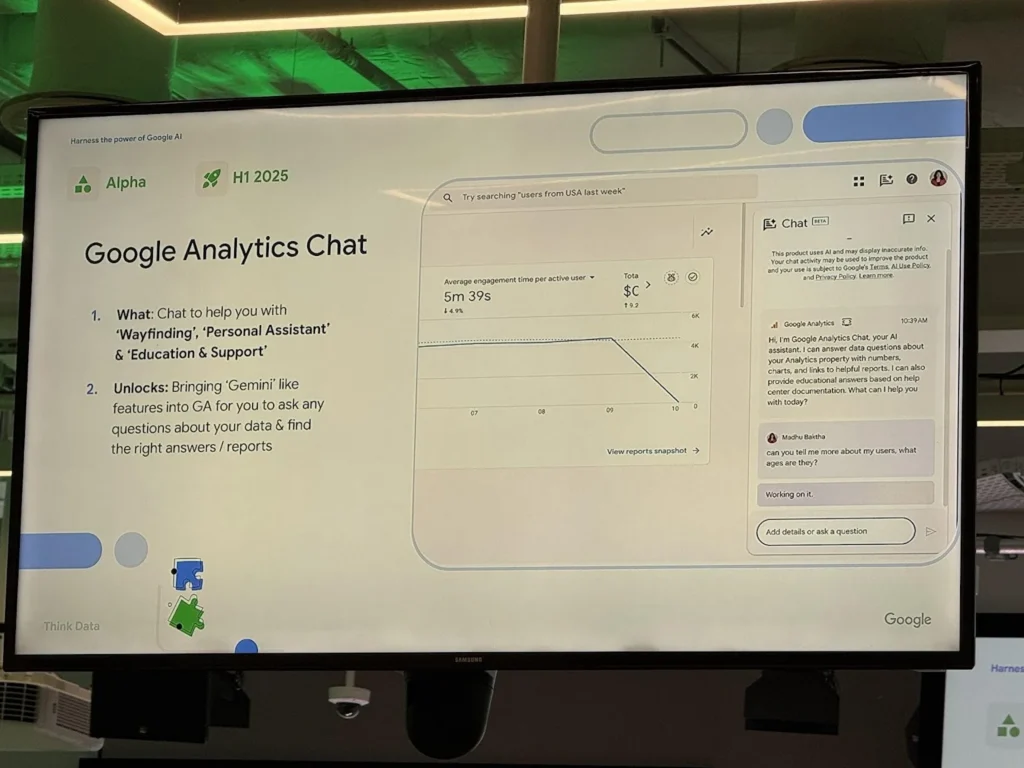
Google New Platform Integrations: The Full Data Picture
GA4 will become the central hub for marketing data because it will:
- Automatically import ad spend data from Snapchat, Pinterest, Reddit, Facebook, and other platforms. This means costs, clicks, and results from different channels will be viewable in one interface.
- Support CRM integrations, allowing for connection of online behavior with offline sales, call centers, or even loyalty cards.
- Share audiences across properties and campaigns, enabling the same strategic logic to be applied across different brands or regions.
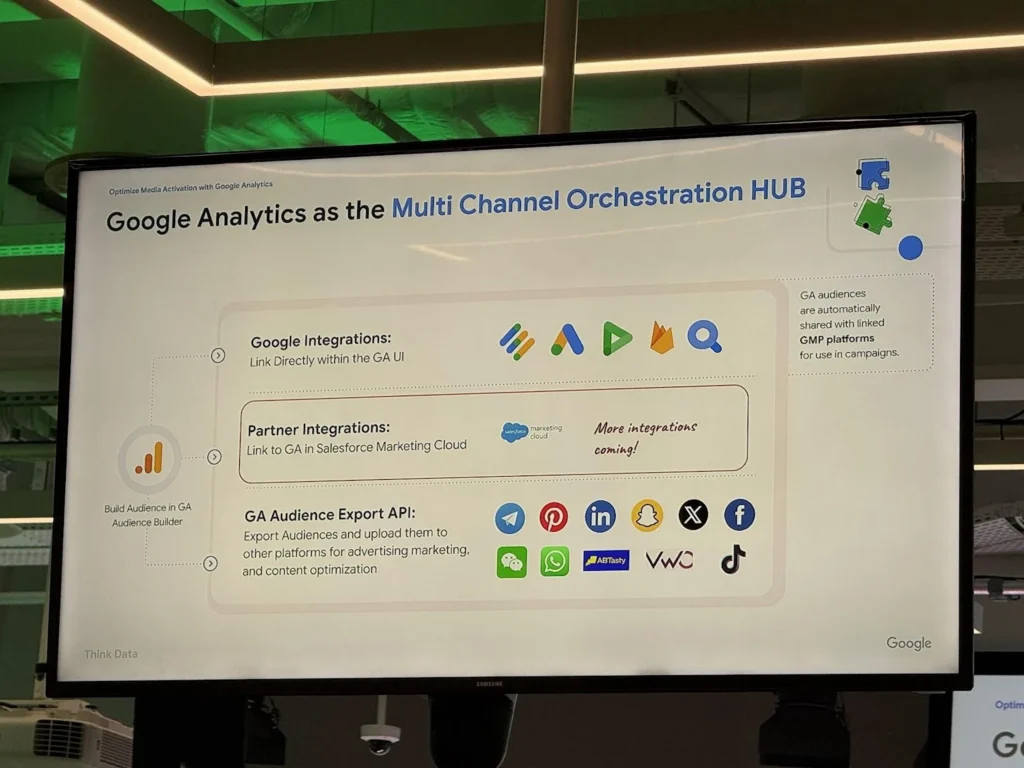
Better Reporting Structure and Historical Data Interpretation
One of the most anticipated changes — the return of the annotations feature, which was beloved by Universal Analytics users. This change is crucial because it will now be easier to:
- Mark significant marketing actions on the timeline (e.g., campaign launch, website redesign, pricing changes).
- Explain data fluctuations to colleagues or leadership.
- Build a cohesive data narrative.
Google Security and Cleaner Data
GA4 strengthens not only capabilities but also data quality and security:
- Smarter spam and bot filters to avoid misleading stats and junk traffic.
- New privacy tools that comply with GDPR and other regulations, ensuring user data is maximally depersonalized and secure.

Cross-Platform Optimization: Budget Allocation Analysis
One of the most advanced features is the ad budget allocation analysis and recommendations. GA4 will assess:
- Which platform provides the best ROI.
- Where investments are not paying off.
- How to distribute budget more efficiently across Google, Meta, TikTok, LinkedIn, and others.
This helps not only with campaign optimization but also in justifying decisions to leadership.
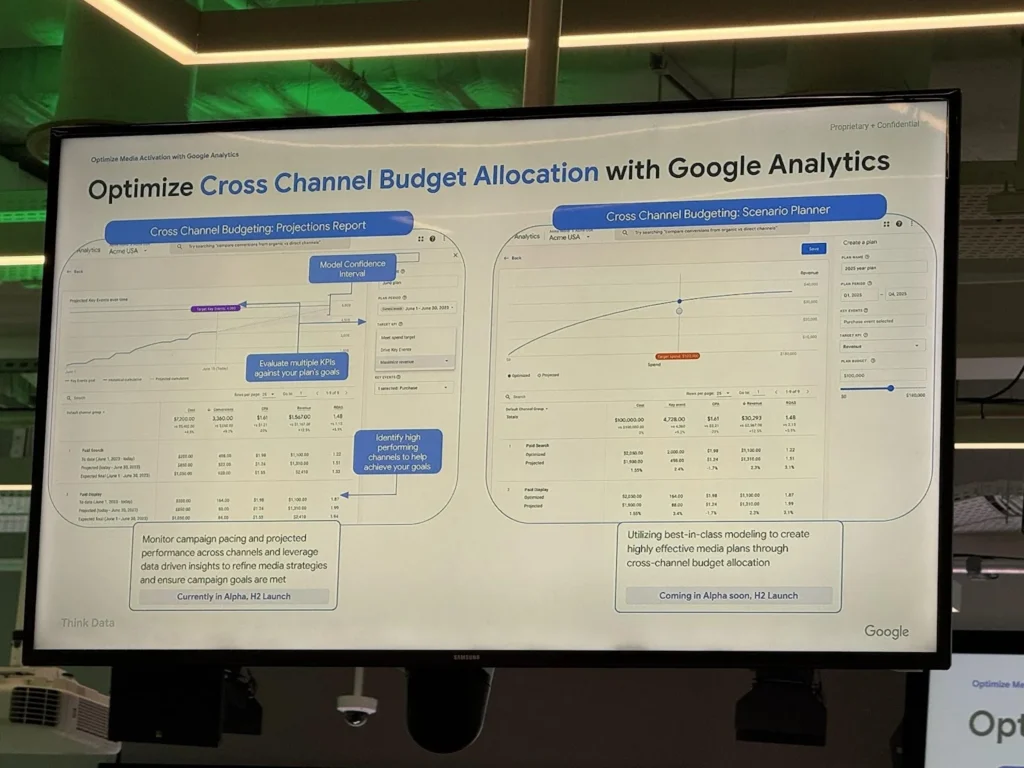
Also read the article: 2025 and B2B Digital Advertising: Best Practices
And: Discovery to Decisions: Marketing in the AI era
What are the major changes introduced in Google Analytics 4 that impact digital marketing measurement?
GA4 shifts from being just an analytics tool to a full-fledged measurement platform, emphasising cross-device and cross-channel tracking, AI-driven insights and deeper integration with advertising and CRM systems.
How does GA4 enable better user-journey analysis compared with older analytics versions?
GA4 allows tracking across multiple touchpoints—ads, organic traffic, mobile apps and even offline interactions—breaking away from “last-click” attribution toward a holistic view of the conversion path.
In what ways does GA4 integrate AI and what benefits does that bring?
GA4 includes AI-powered features such as automatic insights (detecting changes and providing commentary) and an analytics chat interface to query your data directly (“What were main sources of conversions?”). This enables more actionable insights and lowers the barrier for non-analysts.
Why is integrating offline and ad-spend data into GA4 important for marketers?
With GA4’s upcoming integrations—bringing ad-spend data from platforms like Facebook, Snapchat, Pinterest and linking online behaviour with offline sales/CRM—marketers can see full campaign ROI, justify budget allocation, and optimize across channels with better precision.



